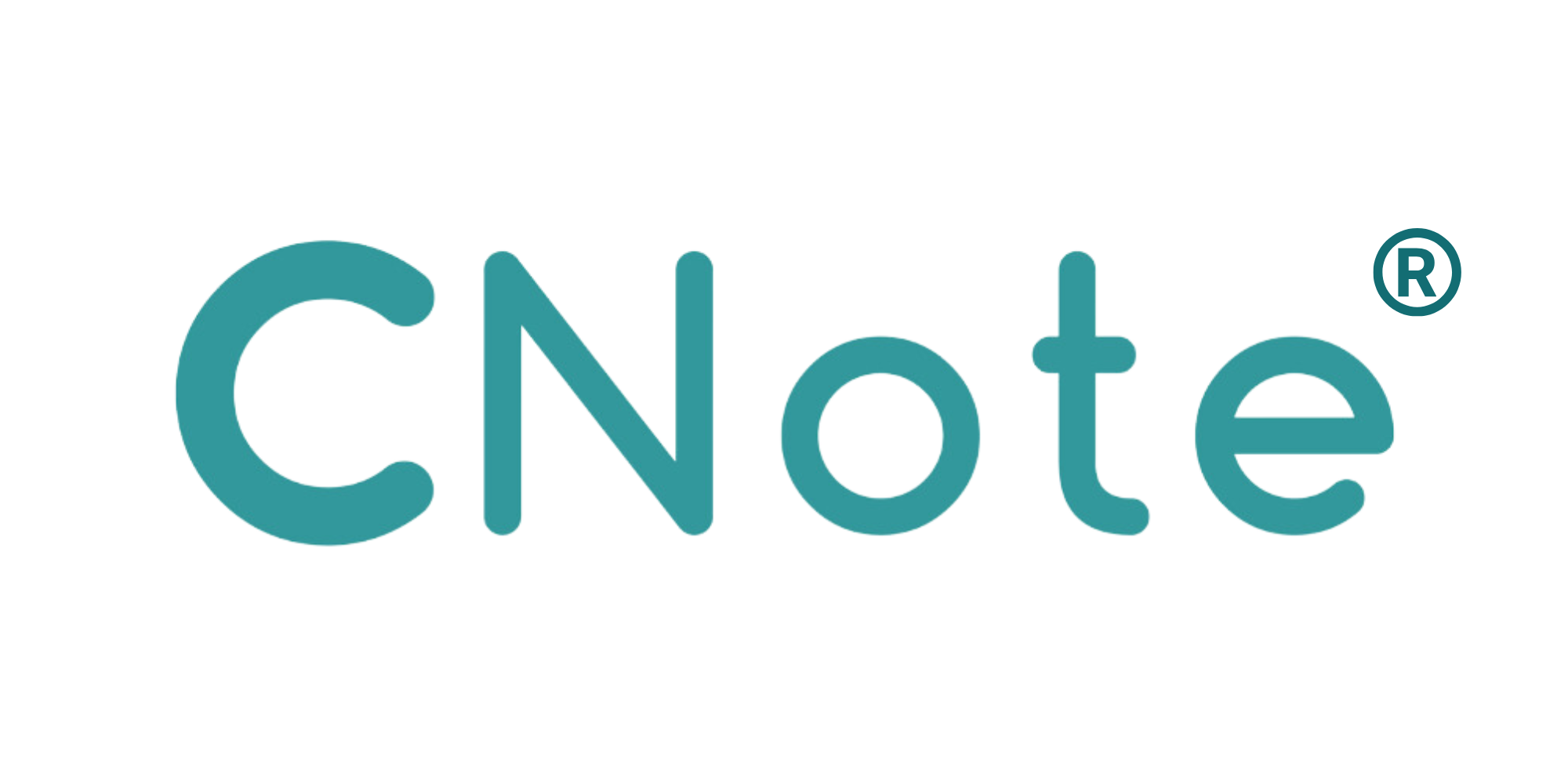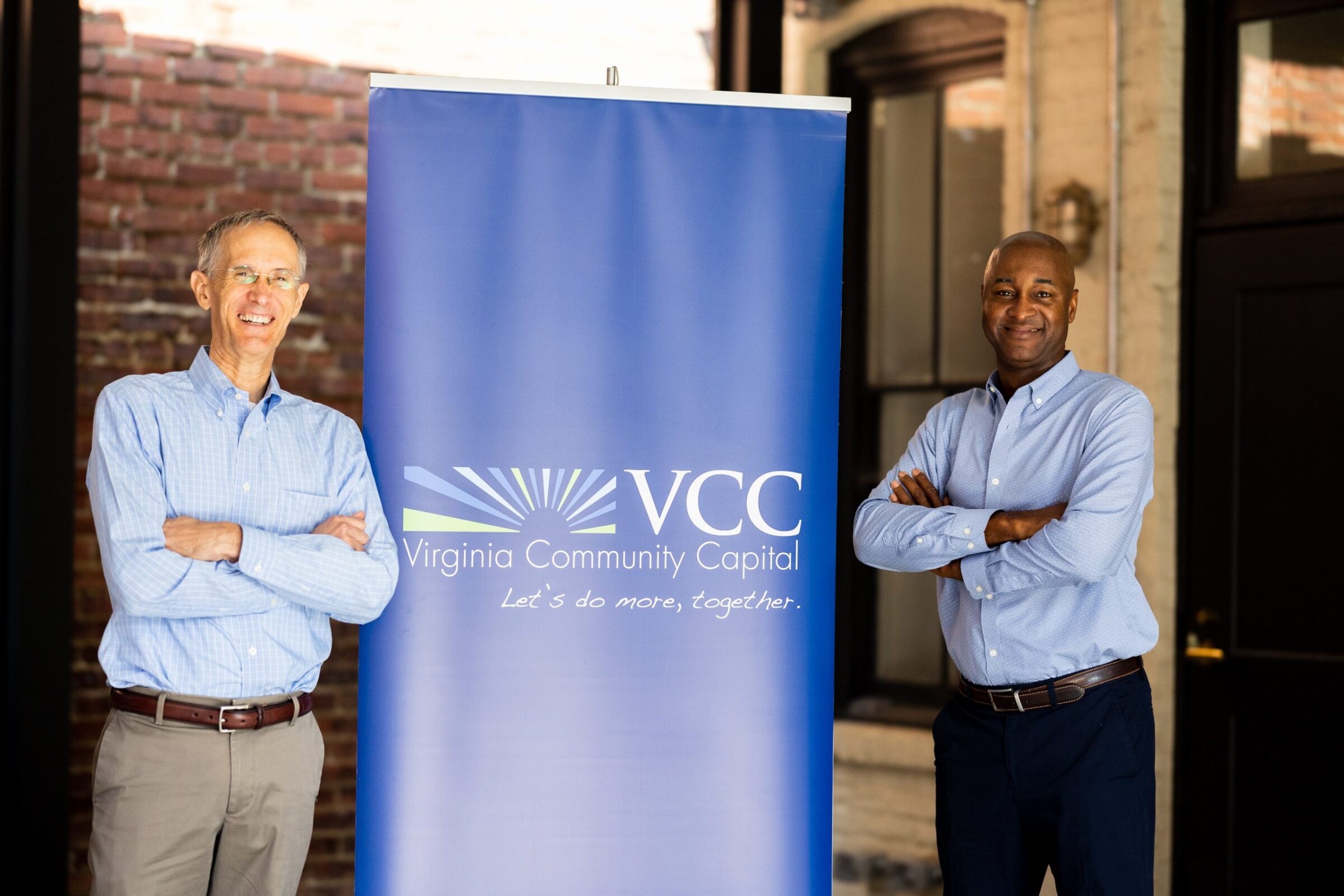When Virginia Community Capital was established by a group of bipartisan state legislators in 2006, the goal was to create a business model that would attract social investors near and far to create jobs, enhance the quality of life, and promote vibrant communities in historically underserved areas across the state. Part of that business model meant structuring the organization to be both a nonprofit Community Development Financial Institution (CDFI) loan fund and a for-profit CDFI bank, VCC Bank. Like other CDFIs, Virginia Community Capital and VCC Bank provide credit and financial services to people, businesses, and communities not served by traditional lenders.
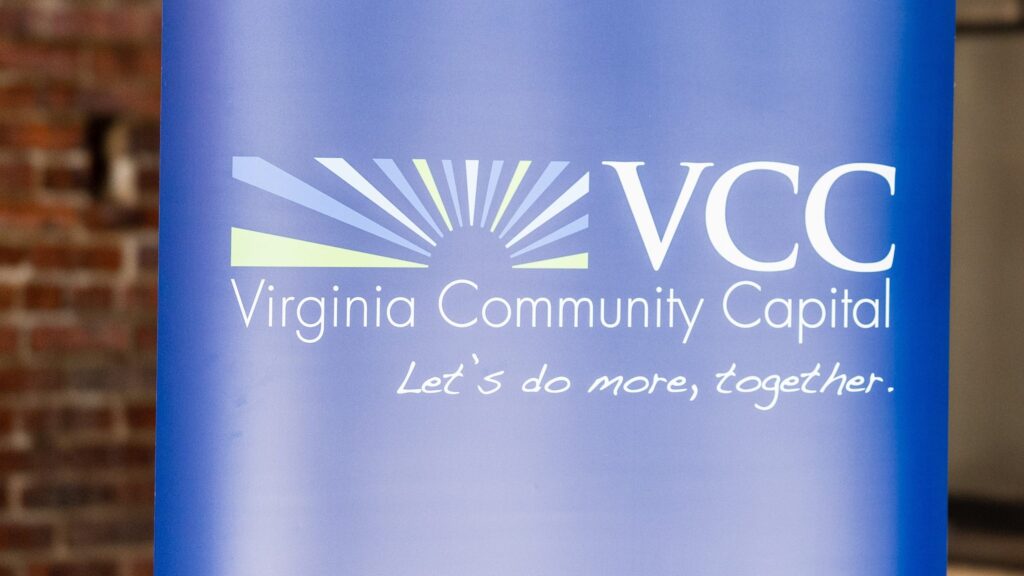
VCC Bank, however, goes even further to challenge the narrative of what it means to be a traditional lender. Not only was VCC Bank one of the first regulated banks in the country to be designated as a Benefit Corporation (B Corp), but the bank is owned by a nonprofit (VCC Social Enterprises, a new holding company formed in 2021). That means that in addition to adhering to standards set forth by B Lab Global, VCC Bank’s shareholders are interested in more than quarterly dividends: they’re interested in tracking the impact created from their dollars. Fortunately, that impact is measurable. At its founding, Virginia Community Capital was seeded with a $15 million loan. Since then, the organization has turned that original investment into nearly $2 billion in statewide impact.
Over the years, VCC Bank has created the reputation for itself as being the “first in” on high-impact community projects that other lenders won’t touch. In general, those projects fall into one of four lending areas: small business, real estate, clean energy, and healthy food. Since its inception, VCC-financed projects have created over 11,000 affordable housing units, supported 30 food-access projects, backed 26 health-related initiatives, and generated or retained nearly 14,000 jobs. Additionally, VCC Bank staff provide thousands of hours of free advising to community members, including Black, Indigenous, or People of Color (BIPOC) and women small business owners. “A lot of these business owners feel that their needs aren’t being met or that the standards elsewhere are such that they don’t qualify for lending,” said Joey Barnes, VCC Bank’s small business lending manager. “Here, we get the opportunity to educate business owners so that they can then work with their bookkeepers to make sure that when they come back to the bank, their loan package is properly prepared.”

Another way VCC Bank is supporting BIPOC and women small business owners is through its Economic Equity Fund: a $10 million loan fund that provides low-cost financing and technical assistance to entrepreneurs who were disproportionately affected by the COVID-19 pandemic and who weren’t able to take advantage of PPP funds. According to Joey, the fund has enjoyed a tremendous amount of success in just a short period of time. Since April 2021, VCC Bank has provided about a dozen small business loans totaling approximately $3.3 million. Thanks to a grant, VCC Bank will be able to extend those fund benefits into the future, including free consulting to qualifying small businesses throughout the state.
‘Opportunities Find Us’
When Bill Greenleaf joined VCC Bank as its senior vice president of real estate lending seven years ago, he was thrilled to have the opportunity to combine his background working in real estate finance with his interest in solar energy to help create VCC Bank’s clean energy loan program. Similar to its other lending programs, VCC Bank steps in to make clean energy loans — primarily relating to solar energy projects — when other banks aren’t willing to get involved, either because a given project is too small or because banks don’t want to invest the requisite time to “figure out how to do it,” says Bill. According to him, even though these projects tend to be small, they have high mission impact, as they often provide free solar energy to low- and moderate-income households.
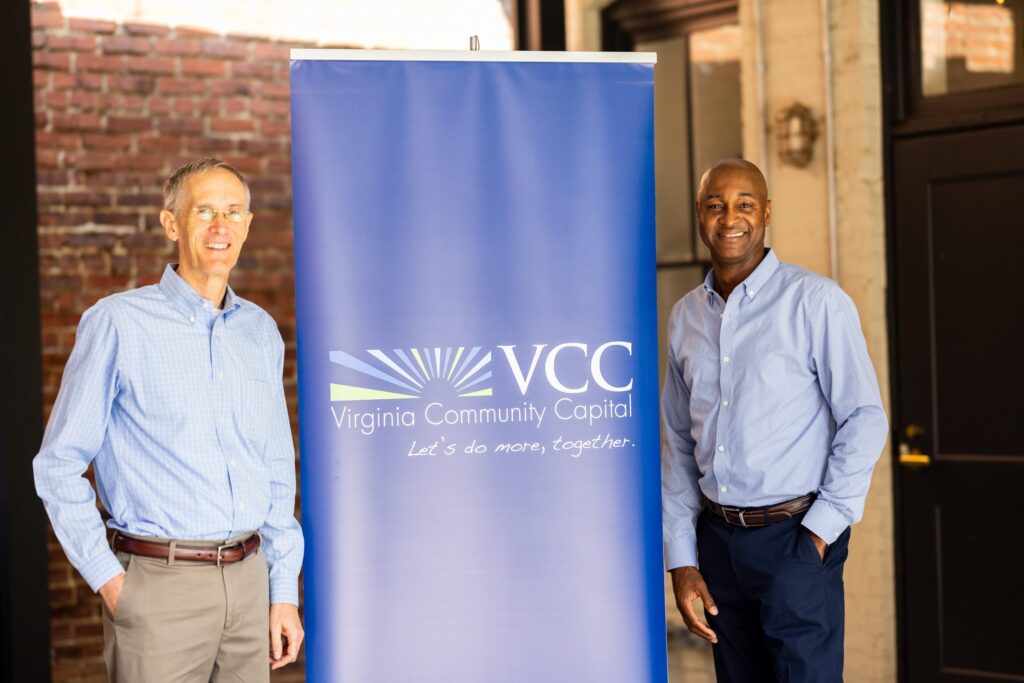
Given its roots in Virginia, it’s not surprising that VCC Bank has done solar lending across the commonwealth, as well as in the District of Columbia; however, the organization has also done loans in places like New Jersey, New York, North Carolina, and Tennessee. Interestingly, VCC Bank’s expansion into neighboring states isn’t a result of proactive marketing efforts. Instead, Bill says that VCC Bank is able to make those loans for two reasons. First, traditional lenders’ avoidance of clean energy lending isn’t unique to Virginia. Second, VCC Bank enjoys a robust referral network that extends beyond Virginia’s borders. “We’ve developed some expertise, and we’re willing to lend out of state and to look at larger deals,” Bill said. “People hear about us, and because we’re willing to work on oddball deals, opportunities tend to find us.”
“Oddball deals” finding VCC Bank isn’t unique to its solar energy lending program. Whether it’s on the affordable housing side, the small business side, or the healthy food side, the bank’s lending team enjoys a remarkable number of incoming leads. Obviously, not all of those inquiries turn into deals; but, just last week, VCC Bank approved a loan to a nonprofit so that the nonprofit can continue its work supporting approximately 80 disadvantaged farmers and grain processors in Virginia while it waits for grant reimbursements from The United States Department of Agriculture. Over the next year, as the grant money comes in, the nonprofit will pay down its loan with VCC Bank. “We’re providing some of the upfront capital to help those farmers,” said Joey. “That’s just one example of how we’ve shifted to trying to serve producers, aggregators, and processors instead of retailers with our food access financing.”
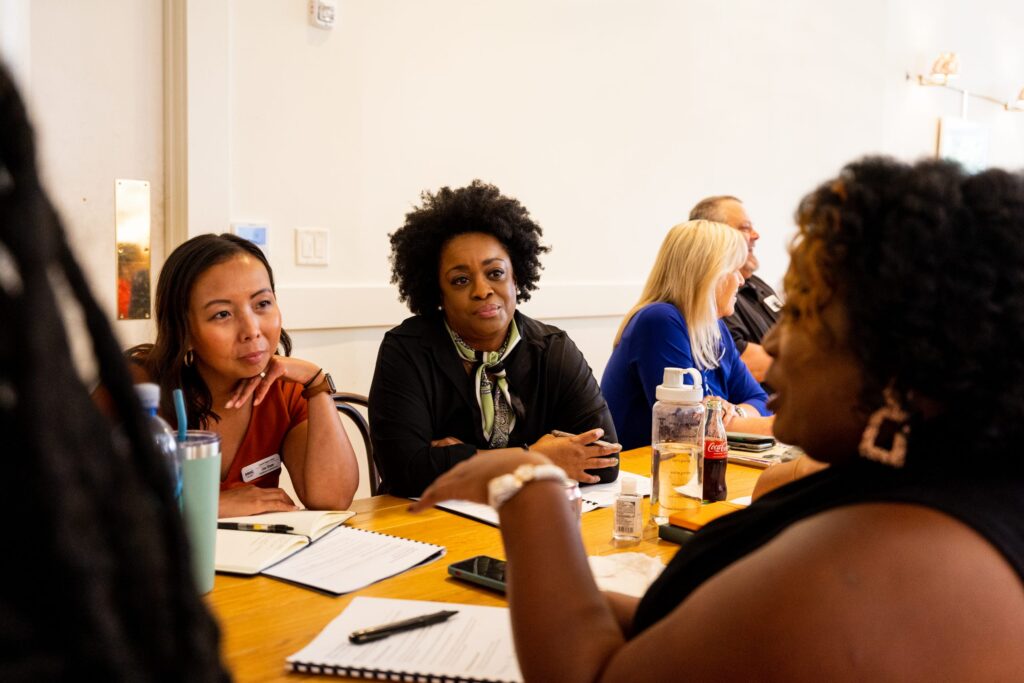
Going forward, VCC Bank plans to improve and expand upon its four lending programs while paying attention to evolving community needs. Although it’s too soon to know how the market will shape its future operations, one thing remains certain: whether it’s creating affordable housing, working with small business owners, funding clean energy projects, or investing in local farmers, VCC Bank will continue to meet the needs of the community when other banks won’t. According to Bill, continuing to forge strong partnerships will be key to the social impact lender’s future success. For example, in 2020, VCC Bank became one of CNote’s Impact Cash™ partners, which allowed it to greatly reduce its reliance on the kind of higher cost deposits it previously needed to meet its increasing loan demand. However, thanks to its partnership with CNote, VCC Bank hasn’t had to book any wholesale funds in the last 12months. “We’re always trying to streamline the loan capital we provide,” said Teresa Martin, VCC Bank’s Director of Deposits, “and CNote’s Impact Cash™ solution is really allowing us to be more impactful with our dollars.”
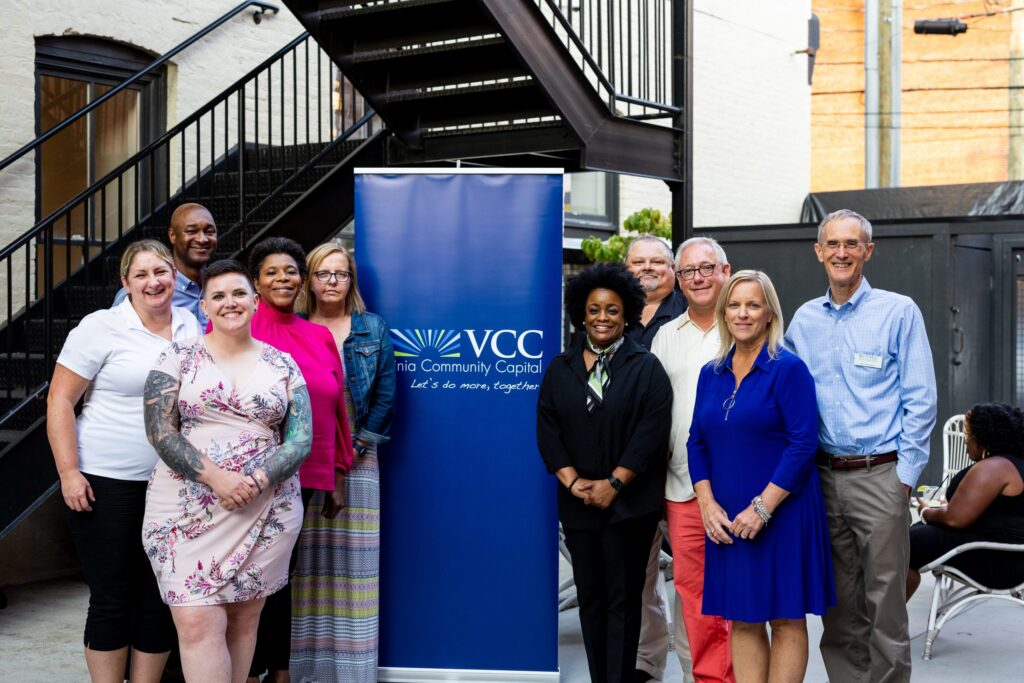
Learn More:
- Virginia Community Capital is a Community Development Financial Institution (CDFI) with a mission to create jobs, energize places, and promote an enhanced quality of life for Virginians.
- CNote is a women-led investment platform that empowers individuals and institutions to invest locally to further economic equality, racial justice, gender equity, and address climate change.
